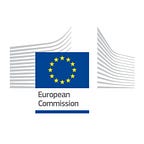Special Eurobarometer: 9 in 10 Europeans support EU’s role in civil protection
The novel coronavirus pandemic has shown that no country is immune to disasters. The European Union plays a key role in coordinating the response to disasters in Europe and beyond. According to the Special Eurobarometer on EU Civil Protection , over 90% of Europeans think that it is important that the EU helps coordinate the response to disasters, wherever they occur. See what EU citizens think about the EU’s role in civil protection.
1. EU citizens are aware that the EU helps coordinate the disaster response
A majority of Europeans (51%) are aware that the EU helps coordinate the response to disasters, of whom 92% say they are aware that their countries participate in this coordinated response.
Disasters know no borders and can hit one or several countries simultaneously without warning. This is why, since 2001, the European Union and six other countries take part in the EU Civil Protection Mechanism, an initiative of the European Commission to improve disaster prevention, preparedness and response.
2. When disasters strike, the EU should coordinate the response
Countries are often overwhelmed when disasters such as earthquakes, floods, wildfires or pandemics happen. To support them, the EU can act as the main contact point and help pool capacities to respond through the EU Civil Protection Mechanism. The majority of EU citizens believe that the EU should coordinate the response to disasters. 43% of respondents consider the EU’s coordinating role to be ‘very important’, while 47% believe it is ‘fairly important’.
3. Europeans are in favour of solidarity among Member States
When disasters are too serious for countries to deal with on their own, more than 9 in 10 EU citizens agree that another EU country should provide help. When another country needs help, 9 in 10 Europeans also believe that their own country should be there to provide support.
During the coronavirus pandemic, Member States have proven what EU solidarity is about: 19 Member States used the EU Civil Protection Mechanism to repatriate stranded EU citizens, and countries like Poland, Romania, Italy, Greece, Germany, Belgium, Austria and Denmark have received coronavirus patients, deployed medical staff, and mobilised medical units co-financed by the European Union.
4. During the coronavirus pandemic, EU coordinated action has helped Member States
The coronavirus pandemic brought new challenges including the lack of ventilators, personal protection equipment, etc. Countries have not been able to respond to this unprecedented outbreak on their own and, in times of crisis, the European Union is stronger together. Europeans agree: 54% think that EU coordinated action has helped their countries respond more effectively to the difficulties posed by the coronavirus pandemic.
As a safety net, the European Commission created the rescEU medical stockpile under the EU Civil Protection Mechanism. This reserve enables the swift delivery of medical equipment, allowing the European Union to react to health crises more quickly. The EU has distributed more than 3.4 million masks, along with ventilators and other equipment, from the nine rescEU host countries.
5. Europeans expect more coordinated action on future challenges
An overwhelming majority agree that coordinated EU action should be increased to respond more effectively to future disasters and crises. More than 84% agree with this statement, with 39% saying that they ‘totally agree’ and 45% who ‘tend to agree’. Only 1 in 10 respondents disagree with this statement.
To ensure a better response to future challenges, the new legislation on the EU Civil Protection will allow faster and more effective European solidarity operations. This legislation will give the EU additional capacities to respond to new risks in Europe and around the world.
To coordinate civil protection actions, the Emergency Response Coordination Centre (ERCC) works 24/7 to help any country inside or outside the EU affected by a major disaster, providing rapid deployment of emergency support and acting as a hub for coordination between EU Member States and participating countries.
· Do you want to know more about the Special Eurobarometer on Civil Protection? Read the full report and country factsheets here.
· Learn more about the EU Civil Protection Mechanism.
· Follow our Twitter account to get the latest news on EU civil protection: @eu_echo
· Visit our website for more information and stories on EU civil protection: http://ec.europa.eu/echo/
